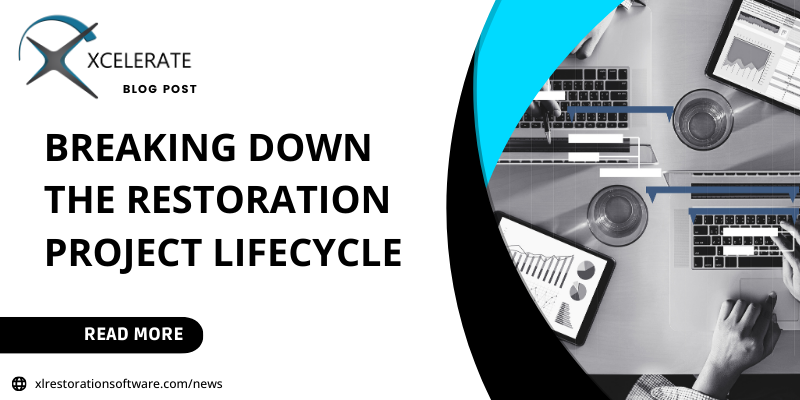Breaking Down the Restoration Project Lifecycle: From Start to Finish
September 17, 2024 •Ember Davis

Navigating a project from inception to completion requires a clear understanding of the restoration project lifecycle. Each phase is crucial, and having the right tools, such as Restoration Software and Job Management Software, is essential for ensuring efficiency and success. This comprehensive guide will walk you through each stage of the restoration project lifecycle, highlighting the importance of Standard Operating Procedures (SOPs) in Restoration to streamline operations and achieve optimal results.
To streamline your SOPs download Xcelerate's Complete SOP guide
Understanding the Restoration Project Lifecycle
The restoration project lifecycle encompasses several distinct phases, each with its own set of tasks and objectives. By breaking down these phases and integrating Restoration Software and Job Management Software, contractors can ensure that every aspect of the project is managed efficiently and effectively.
Initial Assessment and Planning
The first phase of any restoration project involves an initial assessment and thorough planning. This step is critical for understanding the scope of the damage and devising a comprehensive restoration plan.
Site Inspection
Using Restoration Software, contractors can conduct detailed site inspections, capturing high-resolution images and videos to document the damage. This data is essential for accurate assessment and planning.
Scope of Work
Developing a clear scope of work is vital for setting project expectations. Job Management Software helps in outlining the tasks, timelines, and resources required for the project, ensuring all team members are on the same page.
Client Communication
Effective communication with the client is crucial during the initial stages. Restoration Software facilitates transparent communication, allowing clients to stay informed about the project's progress and any potential challenges.
Mitigation and Stabilization
Once the planning phase is complete, the next step is to mitigate and stabilize the affected area to prevent further damage.
Water Extraction and Drying
For water damage restoration, immediate water extraction and drying are paramount. Restoration SOPs in Restoration dictate the use of specialized equipment and techniques to remove water and moisture from the site.
Debris Removal
Clearing debris and damaged materials is another critical task. Job Management Software can help track debris removal activities, ensuring that the site is safe and ready for the next phase of restoration.
Mold Prevention
Mold growth is a common issue in restoration projects. Implementing SOPs in Restoration for mold prevention, such as using antimicrobial treatments, is essential to avoid long-term health risks.
Repair and Reconstruction
With the site stabilized, the focus shifts to repairing and reconstructing the damaged areas.
Structural Repairs
Restoration Software aids in coordinating structural repairs, ensuring that all work is performed according to industry standards and building codes. This software also helps in tracking progress and managing timelines.
Content Restoration
Restoring damaged contents, such as furniture and personal belongings, is a delicate process. Job Management Software helps in cataloging and tracking these items, ensuring they are restored and returned to the client.
Quality Control
Implementing SOPs in Restoration for quality control ensures that all repairs and reconstructions meet the required standards. Regular inspections and documentation are vital for maintaining quality throughout the project.
Final Inspection and Handover
The final phase involves a thorough inspection of the completed work and handing over the restored property to the client.
Detailed Inspection
A detailed inspection is conducted to ensure that all restoration work has been completed satisfactorily. Restoration Software can be used to generate inspection reports and address any remaining issues promptly.
Client Walkthrough
Conducting a client walkthrough is an essential part of the handover process. This walkthrough provides an opportunity to demonstrate the quality of the work and address any final concerns the client may have.
Documentation and Reporting
Comprehensive documentation and reporting are critical for project closure. Job Management Software helps in compiling all necessary documentation, including before-and-after photos, invoices, and warranty information.
The Role of Restoration Software and Job Management Software
Throughout the restoration project lifecycle, Restoration Software and Job Management Software play a pivotal role in ensuring efficiency, transparency, and quality. These tools provide a centralized platform for managing all aspects of the project, from initial assessment to final handover.
Streamlining Communication
Effective communication is crucial for the success of any restoration project. Restoration Software facilitates seamless communication between team members, clients, and subcontractors, ensuring that everyone is informed and aligned.
Enhancing Efficiency
Job Management Software helps in optimizing resource allocation, tracking progress, and managing timelines. This enhanced efficiency reduces downtime and ensures that projects are completed on schedule and within budget.
Ensuring Compliance
SOPs in Restoration are essential for maintaining industry standards and compliance. Restoration Software helps in documenting and enforcing these procedures, ensuring that all work is performed to the highest standards.
Best Practices for Managing Restoration Projects
To maximize the effectiveness of Restoration Software and Job Management Software, it's essential to follow best practices for managing restoration projects.
Develop Clear SOPs
Clear SOPs in Restoration are the foundation of a successful project. These procedures should be documented, communicated, and enforced consistently across all projects.
Invest in Training
Ongoing training for team members is crucial for staying updated with the latest industry standards and best practices. Investing in training ensures that your team is equipped to handle any challenges that arise during the project.
Leverage Technology
Embrace technology solutions, such as drones for site inspections and moisture meters for water damage assessment, to enhance the accuracy and efficiency of your restoration projects.
Conclusion: Achieving Success in Restoration Projects
Navigating the restoration project lifecycle requires careful planning, effective communication, and a commitment to quality. By leveraging Restoration Software and Job Management Software, contractors can streamline their operations, enhance efficiency, and ensure that every project is completed to the highest standards. Embrace these tools and best practices to achieve success in your restoration projects and deliver exceptional results for your clients.
For a deeper dive into optimizing your restoration processes, download Xcelerate's Complete SOP Guide. This comprehensive resource provides detailed Standard Operating Procedures tailored specifically for restoration contractors, helping you elevate your business to new heights. Get your free copy today and start transforming your restoration projects with proven strategies and best practices.



